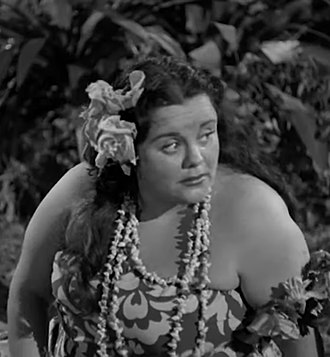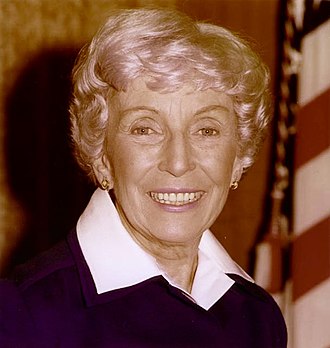Discover Your Roots
SIGN UPDiscover Your Roots
SIGN UPMuriel is a female given name of Irish origin, derived from the Goidelic language with the meaning "Sea Bright" (muir "sea" and gheal "bright"). It has been historically popular in Breton, Irish, and Scottish Gaelic languages. The name gained prominence in medieval England as "Merial" and reemerged in the mid-19th century in the form of Muriel, particularly due to its depiction in Dinah Craik's novel "John Halifax, Gentleman." While it was a top 200 name from 1912 to 1933, its popularity has since declined, and it is now considered rare. Notable individuals bearing the name include Muriel Anderson, Muriel Bamblett, and Muriel Box. Additionally, the name has been used for fictional characters in literature and entertainment, such as Muriel Bagge and Lady Muriel Orme.

Muriel Elizabeth Bowser, born on August 2, 1972, is an American politician and member of the Democratic Party. She has been serving as the mayor of the District of Columbia since 2015. Bowser previously represented the 4th ward as a member of the Council of the District of Columbia from 2007 to 2015. Notably, she is the second female mayor of the District of Columbia and the first woman to be reelected to that position. Bowser began her political career in 2004 when she was elected to the Advisory Neighborhood Commission, and she later won a special election to fill the council seat vacated by Adrian Fenty. Throughout her career, Bowser has been reelected multiple times and has won the general elections with significant margins, reflecting her popularity and support among the constituents. Born and raised in Washington D.C., Bowser graduated from Elizabeth Seton High School and later earned a bachelor's degree in history from Chatham College and a Master's in Public Policy from the American University School of Public Affairs. Despite initially envisioning a career as an appointed agency administrator rather than an elected politician, Bowser's passion for public service and leadership has propelled her to become a prominent figure in the political landscape of the District of Columbia.

Muriel Landers (October 27, 1921 – February 19, 1977) was a talented American actress, singer, and dancer known for her comedic roles in film and television. Born in Chicago, she initially struggled to find acting opportunities due to her weight but eventually carved out her niche in comedy. Landers' career took off when she appeared on The Frank Sinatra Show, catching the attention of Jack Benny, leading to performances with him at the London Palladium and later on The Jack Benny Program. She made her feature film debut in Bela Lugosi Meets a Brooklyn Gorilla and continued to showcase her comedic talents in various television shows and films, including appearances with The Three Stooges and a memorable role in the comedy classic Pillow Talk. Landers also guest-starred in dramatic and western series, showcasing her versatility as an actress. In 1977, Landers tragically passed away due to a stroke, leaving behind a legacy of memorable performances. Her contributions to the entertainment industry continue to be celebrated and remembered by fans and colleagues alike.

Muriel Fay Humphrey Brown, born Muriel Fay Buck, was an influential American politician and the second lady of the United States from 1965 to 1969. She was also a U.S. Senator from Minnesota in 1978. Married to the 38th vice president of the United States, Hubert Humphrey, Muriel was a trailblazer, becoming the first woman to serve as a senator from Minnesota. Muriel's political career was influenced by her marriage to Hubert Humphrey, and she played a crucial role in his campaigns and political activities. After Hubert's death, she was appointed to his seat in the United States Senate, where she made significant contributions, advocating for the extension of the Equal Rights Amendment (ERA) ratification deadline and supporting programs for persons with mental disabilities. Muriel's dedication to public service and advocacy for important causes, such as Down Syndrome visibility and mental health, left a lasting impact. Her legacy as a pioneering woman in American politics continues to inspire future generations.

Muriel Belcher (1908–1979) was a prominent English nightclub owner and artist's model best known for founding and managing the exclusive private drinking club, The Colony Room, located at 41 Dean Street, Soho, London. Belcher's charisma, strong personality, and daunting door policy contributed to the club's long-term popularity among London's bohemians for over 60 years. The club's exclusivity attracted renowned figures such as Francis Bacon, Lucian Freud, George Melly, Jeffrey Bernard, and the Kray Twins. Belcher's close association with Bacon led to her being the model and muse for several of his notable paintings. The Colony Room became a haven for misfits and outsiders, thanks to Belcher's autocratic and temperamental nature. Her legacy lives on through portrayals in films and the enduring influence of the club on the art scene. Despite her controversial persona, Belcher's impact on the cultural landscape of Soho remains undeniable, making her a significant figure in the history of London's nightlife.

Muriel Gardiner Buttinger (née Morris; November 23, 1901 – February 6, 1985) was an American psychoanalyst and psychiatrist known for her remarkable contributions to psychoanalysis and her courageous involvement in the Austrian underground resistance during World War II.Born into a family of wealth and privilege in Chicago, Gardiner pursued her education and career in Europe. She studied psychoanalysis with Sigmund Freud in Vienna and later became deeply involved in the covert activities of the Social Democratic Party of Austria, using the code name "Mary" to smuggle passports and money and provide a safe house for dissidents.After fleeing to the United States at the outbreak of World War II, Gardiner continued her impactful work, editing significant case histories and authoring studies on teenage violence. Her memoir, "Code Name Mary: Memoirs of an American Woman in the Austrian Underground," documented her experiences and contributions during the war.Gardiner's legacy extends beyond her professional achievements, as she left a lasting impact on the field of psychoanalysis and the broader community. She passed away in 1985, leaving behind a powerful legacy honored by the Muriel-Gardiner-Buttinger-Platz in Vienna and the Muriel Gardiner Program in Psychoanalysis and the Humanities at the Western New England Psychoanalytic Society in New Haven, Connecticut.
All images displayed on this page are sourced from Wikipedia or Wikimedia Commons.We use these images under their respective Creative Commons or public domain licenses. Wherever applicable, author attributions and license information are provided. If you believe an image is used incorrectly or outside its license terms, please contact us so that we can review and correct the issue.